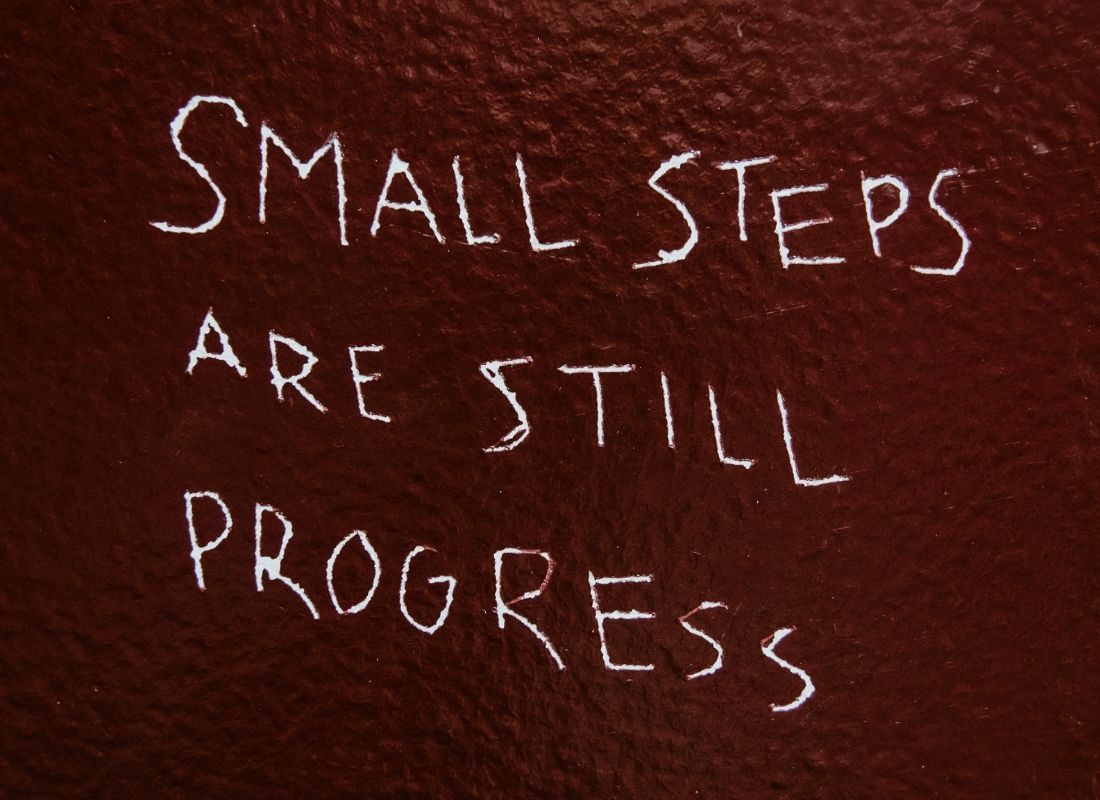You’re only human. Every human on this planet experiences fears.
Everyone has their own specific fears.
In order to go step out of your current reality and embrace success, you’ll likely have to face your unique fears along the way. Facing your fear is not easy – so give yourself credit.
There are several ways that you can look at identifying and tackling your fears.
Reaching success comes when you overcome the fears that are holding you back. Unless you take action to overcome your fears, these will continue to hold you back from doing what you were meant to do.
Whether it relates to your personal goals or your business success, fear keeps you stuck. You can only make progress when you conquer your fear.
We want to see you succeed. If you’re interested in diving deep into identifying the dreams that you have for your future – we recommend you check out our Project OTY framework here.
Now, we want to dive into fear.
- Why do you feel it?
- What does it do to you long term?
- What are some tips that you can incorporate to overcome fear?
Why Do We Fear – Fear?
We give weight to fear for a number of reasons.
Primarily our reason for fear itself goes back to our survival instincts. We are hard-wired to experience fear in order to protect ourselves from threats in our environment.
While our environment has evolved significantly since the age of our early ancestors, we still deal with valid fears. They’ve changed from sharp-toothed predators to more modern fears, like dealing with debt, facing a global pandemic, managing work stress, and dealing with a shower of inbox notifications.
The primitive side of you brain still wants to protect you from impending doom.

This part of the brain is also sometimes referred to as the “lizard” or “reptilian” brain. This is due to the fact that the included structures in this part of the brain are also found in a reptile’s brain.
Thankfully, we have a little more brain matter stacked on top to anticipate events and reason through them.
This part of the brain controls our more involuntary bodily functions like our heartbeat, breathing and body temperature. All of the parts and pieces that allow us to duck out of the way when something is flying fast to our face. Or manage the daily processes of our body that we need to live.
This part of our brain is what’s in charge of our fight or flight response.
When we face our fear, this more compulsive part of our brain kicks into gear to react to what we perceive as fearful.
No two people are the same. Everyone has different fears.
1. Social anxiety
2. Fear of the dark
2. Fear of heights
3. Fear of failure (atychiphobia)
4. Fear of spiders (arachnophobia) or other specific animals
5. Fear of death (thanatophobia)
7. Fear of tight spaces (claustrophobia)
8. Fear of flying
9. Fear of open spaces
10. Fear of needles
There are many fears beyond this list.
What you fear is unique and the concept of facing your fears, creates a fear in itself.
You may fear fear because it unsettles you. It makes you uncomfortable with the unknown and creates a lack of control.
Why Living in Fear is Bad For You
Consistently living in fear means that you body works overtime behind the scenes in constant fight-or-flight mode. This is your body’s automatic fear response system.
Normally, during a short-lived response, your body is releasing the chemicals adrenaline and noradrenaline. This creates the reaction of your body to speed up your heart rate, make your skin flush, and your hands tremble.
Cortisol is also released to stop the functions of your body that would otherwise digest food or help support your immunity.
Take this response and extend it over time, and your body’s systems get off balance. This is especially the case with stress at work, or feeling intense stress and anxiety.

Your body continues to release these same chemicals that impact your body’s function. Your sleep cycle is effected, your weight fluctuates, your appetite shifts and your body is at greater risk for other issues.
Living in fear takes a critical toll on your health. It puts you at a greater chance of chronic issues like heart disease or mental disorders that include anxiety and depression.
Being able to identify and overcome your fears is critical. Don’t let fear take over your life and impact your health.
How Do I Know My Fears?
It’s hard to face your fears. It’s also hard to admit to your fears – whether to others or yourself.
In order to face your fears, you need to understand what they are.
This is a specific exercise we guide all individuals through in the Project OTY framework on a deeper level.
Ask yourself: What stands in my way of accomplishing what I want to accomplish?
Write down a list of fears that come to mind. Some of them may belong to the list of common fears above, but expect that some may be different and specific to you.
How Can I Conquer My Fears?
If you’ve heard this before – it’s worth saying again: It is better to face your fears than to avoid them.
You need to conquer your fears in order to achieve the visons and goals that you have set for your life.
Otherwise, you continue to live in your overwhelming fears and hope for success in the meantime.
Conquering your fears is conquering your mind.
Here are a couple of ways that you can conquer your fears and face the success that is meant for you:
1. Envision yourself facing your fear with bravery.
If you think of yourself as facing your fear feeling unafraid, you will be in a better spot to face your fear.

Think along the lines of “I am capable of facing X,Y and Z”, rather than “I will not be afraid.” Focus on statements that highlight you actively conquering your fear in the present. Your unconscious mind will better attach to positive, affirming statements.
For achieving what you want, whether it’s personal goals or business goals, job or relationship success, fear is the factor that’s needs removing.
2. Learn more about your fears.
There is much to fear from the unknown or what you don’t know.
For example, if you’re afraid of public speaking, learning ways to stay calm in front of an audience and speaking techniques – can go a long way to alleviate and gain control of a fearful situation.
If you’re afraid of spiders, it can make a major difference to learn to spot non-poisonous spiders as much as poisonous spiders.
For flying, knowing the safety measures that are in place and statistics on plane safety as opposed to focusing on negative news, can also help.
If you have money-based fears around debt, focus on what expenses you can control with your income and abilities that allow you to earn money. Focus on ways you can become more financially literate to take steps to taking control of money, rather than the other way around.
3. Take small steps.
Facing a fear doesn’t mean conquering it in a day.
That would similar to slaying a dragon on the first day of your quest. The path to conquering your fears should be more incremental.
Take it in small steps with exposure therapy. Slowly expose yourself to scenarios that allow you to interact with your fear more and more each time.

If you are public speaking at work, practice speaking in front of a friend. Then two friends. Then a small group of friends or family members.
Go to a public speaking group and listen.
Try a new event and make a small introduction.
Build up to doing a bigger step the next time.
4. Seek out sessions with a therapist.
Don’t place the expectation on yourself to face your fear alone.

Remember what we mentioned at the beginning? You are human, just like anyone else. It’s okay to ask for help and seek guidance in confronting your fears.
What are your fears?
How are you going to take the above tips and put them into action?
If you’re curious on how to identify your fears, attach them to goals and achieve your goals effectively, Project OTY is your guide.
Click here to see the process and understand why individuals are raving about their future and teams are sharing business success.

